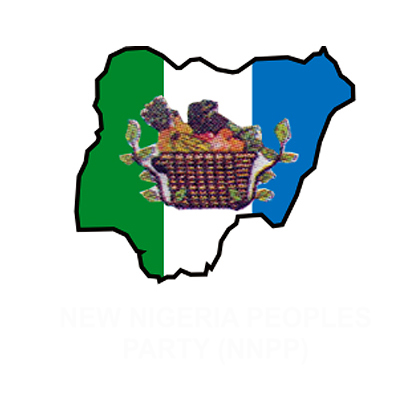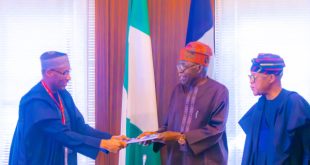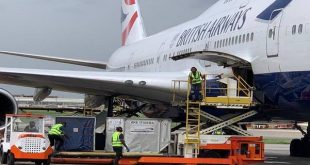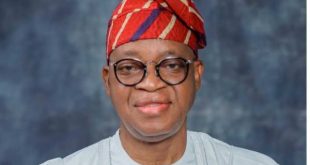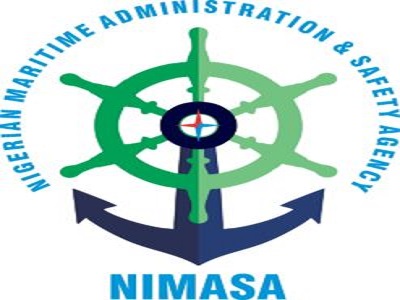· Why NBS railway earning stats are deceptive – CILT
· Nigeria should learn from Chinese debtors across Africa – Udoma

By Kenneth Jukpor
Despite the hype surrounding the Nigerian Railway Corporation (NRC) after it generated N1.08 billion in the second quarter of 2021, the railway corporation will be unable to repay infrastructure loans in the next fourteen decades from its earnings.
The National Bureau of Statistics (NBS) in its Rail Transportation Data Q2 2021, noted that the Corporation earned N1.08 billion from passengers whilst earnings from cargo traffic was N71,555,762 for the same period.

While this revenue figure has been lauded as a demonstration of the nation’s massive investment in rail infrastructure, NBS didn’t avail the expenditure covered by the Corporation in the bid to realize the N1.08 billion in the last quarter.

According to the statistical office, the revenue generated from passengers in the second quarter of 2021 was put at N1,083,851,021 as against N892,467,526 in the first quarter of the year 2021.
NBS said revenue generated from goods and cargo in Q2 2021 was N71,555,762 as against N26,195,160 in Q1 2021.
Meanwhile, the loan facility collected to fund Lagos/ Ibadan railway alone is $1.53 billion (N581 billion) at N380/$ when the contract was entered.
Going by a bloated revenue income of N4 billion annually which is seen as profit after taking out the expenditure and other costs in maintaining the rail assets, it would take the nation over 145 years to repay that loan infrastructure alone.
Meanwhile, there are also other loans for railway infrastructure such as; the $1.2 billion Kaduna-Kano rail line, Kano-Maradi rail at $1.959 billion, $3.02 billion for Port Harcourt-Maiduguri rail line and an industrial park, which is under Public-Private Partnership (PPP), will cost $241 million.
Speaking with MMS Plus on the possibility of NRC generating funds to pay off Nigeria’s railway loans, a railway expert and Director-General of the Chartered Institute of Logistics and Transport (CILT) Nigeria, Mr. Paul Ndibe stressed that the information from NBS was one-sided because it only focused on earnings without telling the expenditure.
His words: “It would be difficult to ascertain the true amount earned or whether NRC actually made losses. Looking at railway operations, the cost of diesel is about N260 per liter and an engine (the 21 class loco) takes about 4,000 liters depending on the capacity of the engine. This would cost over N1 million diesel and the next finding should be how long this diesel would last but that is another separate discussion. So, it is a good thing to note that NRC earned so much money; but it is better to know the costs or expenditure incurred to earn that figure.”
Ndibe also argued that the possibility of Nigerian railways making sufficient profit to pay-off its debts depends on how the earnings are reinvested because there would always be a need to retool, balance and sustain the integrity of the tracks.
“Except the line capacity of the rail track is increased, having two rails for the same route may not be profitable. Having one train leaving Ibadan to Lagos and another leaving Lagos to Ibadan is not the best approach because for the period in-between the tracks are idle. Rail tracks aren’t supposed to be idle because the efficiency of any railway is dependent on its line capacity. I would expect that NRC looks at its schedules to see how many additional train fares they can deploy in order to increase the revenue potentials,” he said.
Also noting that the increase in NRC’s revenue and railway activities would mean the cost incurred would also increase, he stressed that the margin of increment is what should be looked at.
“Since we already have the rail tracks and trains, why can’t we deploy more train movements? It is only when this level of efficiency is attained that we can begin to discuss the longevity of paying the railway infrastructure debts.”
“The aspect of cargo movement is also another area that could generate more earnings but it hasn’t been fully integrated because containers going to Kano stop at Ibadan and trucks do the transport from Ibadan to Kano. If the rail track is extended to Kano, we can imagine the economies of scale,” he added.
Meanwhile, investigations have shown that the average cost per kilometer (km) of the new Nigerian rail lines exceeds similar projects under the Programme for Infrastructure Development in Africa (PIDA), as estimated by the African Union (AU) by, at least, 100 percent.
When Nigeria signed a Memorandum of Understanding (MoU) with Mota-Engil Group for the construction of the 283.75 Kano-Maradi standard-gauge rail at a contract cost of $1.959 billion, the breakdown of the contract shows that it will cost approximately $6.91 million (or N2.6 billion) per km to deliver the project expected to be ready in the next three years.
However, findings have shown that it is much cheaper to deliver similar projects in other parts of Africa. More importantly, the quotation for a similar distance under Africa’s rail connectivity programme being discussed at the continental level is less than half of what Nigeria will spend to execute a bilateral project but which the country has chosen to shoulder alone.
In an AU document titled ‘Towards the African Integrated High-Speed Railway Network (AIHSRN) Development’ as reported by The Guardian, the union puts the estimates of the new railway line needs of the continent at 12, 000km, which are expected to be completed at a cost outlay of $36 billion.
“Under PIDA, 11 ARTIN corridors have been determined to require modernization of existing railway lines and construction of new, modern rail lines as soon as possible as traffic demand is expected to exceed 10 million tons annually by 2040. In this regard, it is estimated that about 12,000 km of new railway lines would be built under the PIDA programme at a cost of about US$ 36 billion,” the strategy document revealed.
At the estimated cost, the quote per km of rail track is $3 million, which is 57 percent less than what the Nigerian Government, which has been part of the AU rail programme conceptualization, will pay the Portuguese-owned Mota-Engil Group for the Nigeria-Niger rail contract.
Speaking with MMS Plus on the high cost of Nigeria’s railway projects and the nation’s increased borrowing from China, a finance expert and Chief Executive Officer (CEO), Quiet Dimensions Limited, Mr. Ime Udoma expressed worry on the multiplicity of loans Nigeria was getting from China especially after the developments in some African countries where China took ownership of their major assets in a bid to recoup their investments.
“I belong to the school of thought that China, like America, is trying to re-colonize African nations. When China gives loan facilities, they are hoping to recoup their investment in natural resources and sometimes the affected nations can’t measure the quantity of what they are taking. When we look at how China has taken over the broadcasting corporation and other valuable assets of its debtors within Africa, it shows that Nigeria has to be careful” he said.
Giving a breakdown of passenger traffic, NBS said, the rail transportation data for Q2 2021 reflected that a total of 565,385 passengers traveled via the rail system in Q2 2021 as against 108,238 passengers recorded in Q2 2020 and 424,460 in Q1 2021.
It said that this represented +422.35 per cent growth year on year and +33.20 per cent quarter on quarter respectively.
For goods/cargo, it said a total of 42,782 tons of volume of goods/ cargo travelled via the rail system in Q2 2021 as against 8,691 recorded in Q2 2020 and 10,511 in Q1 2021.
It said that this represented +392.25 per cent growth year on year and 307.02 percent quarter on quarter respectively.
 MMS PLUS NG – Maritime, Aviation, Business, Oil and Gas News Online Newspaper with coverage in Maritime, Oil and Gas, Aviation, Power and Energy as well as Financial News
MMS PLUS NG – Maritime, Aviation, Business, Oil and Gas News Online Newspaper with coverage in Maritime, Oil and Gas, Aviation, Power and Energy as well as Financial News





